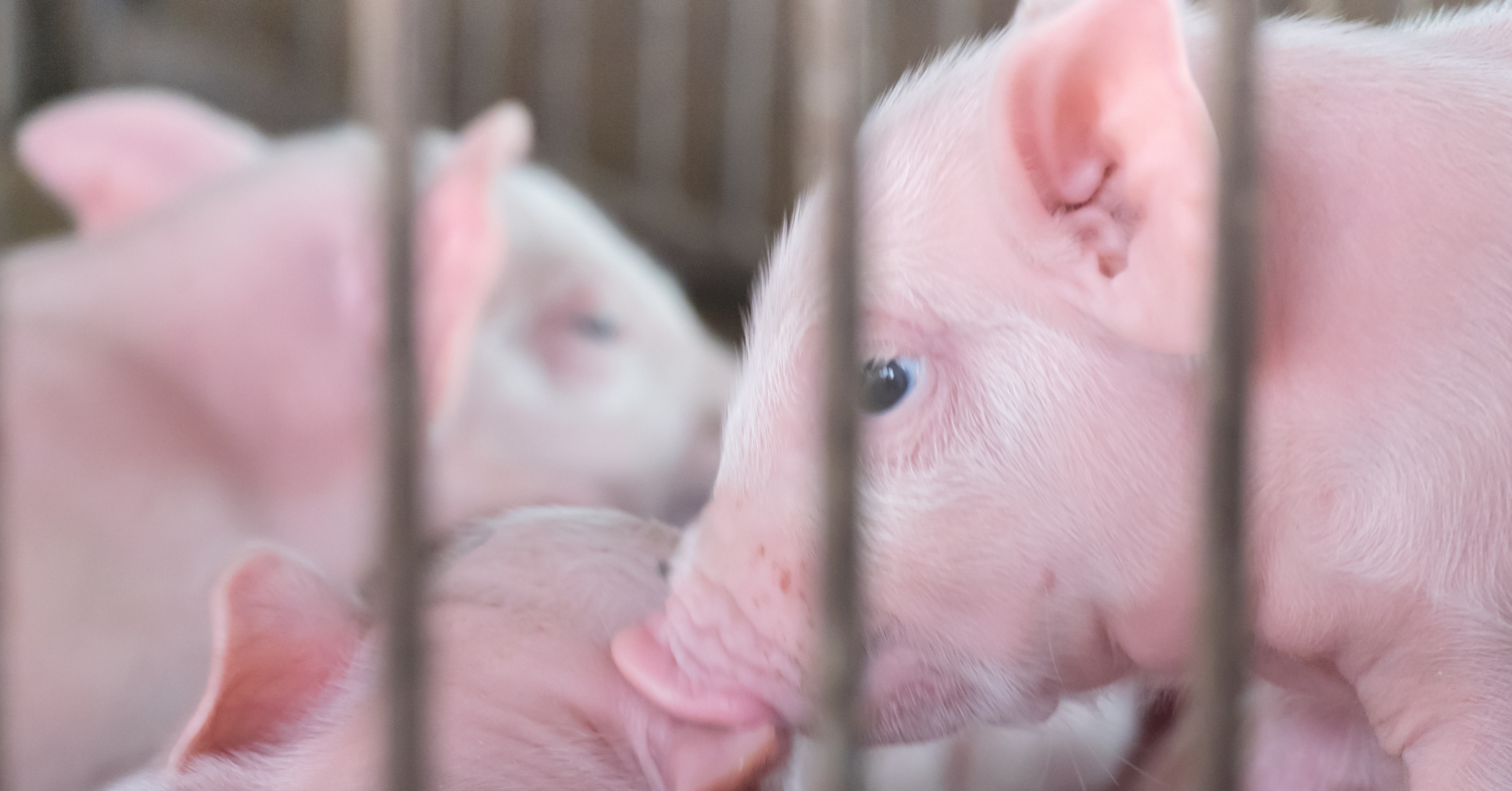
Earlier this Farm(ed) Animal Awareness Week, we wrote about the oft-unrecognized reality that farmed animals are victims of the animal research industry. And, as is true of all victims of this ethically debased industry, their exploitation knows no bounds.
Take as one, single example the farmed animal “research” that has been making news recently: the hybridization of pigs with humans to grow human-compatible organs.
Animal researchers are celebrating(!) the creation and termination of human-pig embryos.
For centuries, humans have treated other-than-human animals as sources of “spare parts” for humans, forcefully removing and, then, attempting to transplant into and onto human bodies their organs, tissues, and cells. This practice – xenotransplantation – continues today despite not having succeeded in saving human lives (as promised over and over and over and over by researchers) and posing tremendous and inescapable human health risks (such as the transmission of infectious pathogens between species).
Yet – while they deliberately and entirely ignore human-relevant, immediately available, non-animal options for human lifesaving (discussed below!) – researchers want us to congratulate them on growing “early-stage”, chimeric (65% human and 35% porcine) kidneys in pig embryos.
These unethical “projects” continue today because, just like the entire self-serving industry in which they unfold, they remain lucrative for researchers.
It is projected that a single organ capable of successful xenotransplantation into a human would, itself, fetch up to $500,000. (This estimate does not include the tremendous cost of on-going antirejection drugs – manufactured by the same companies working on the organs – or the estimated $600,000 to $1,000,000 of associated medical costs for the transplant and after-care.)
Even more fundamentally, however, researchers do not need to succeed to guarantee themselves job security – in fact, continued failure (especially amidst baseless claims of projected success) is likely even better for them: announcements of the human-porcine hybrid kidneys have been joined with calls for more and more animal research. Because the growth of these chimeric kidneys involved genetic modification, animal researchers have already said that “extensive animal testing” will be necessary to find out whether these changes will, as feared, cause cancer and other harms when “transplanted into humans”.
Animal researchers, including those involved in xenotransplantation research, distract from the harm they’re inflicting with hollow nods to humans in need.
Animal researchers love to shout that they’re working to save human lives – that the inhumanity they display each and every day will, somehow and someday, benefit humans. But their claims are as disingenuous as their science is unethical and ineffective.
Take, again, our one, single example: we could solve the shortage of human organs – i.e., save the lives of the humans for whom researchers are feigning concern – almost immediately and without harm to anyone by divesting animal research and instead:
- Encouraging more healthful living: “If even half the money now being spent on pig organs were going to education and prevention, the need for organs would plummet . . . lifestyle accounts for most diseases including those that lead to the need for transplants.” (Unfortunately, as we know, the animal research industry is not at all concerned with preventing disease – only with profiting from researching disease itself. Indeed, the NIH allots only a small fraction of its multi-billion dollar animal research budget to preventive medicine.)
- Requiring that individuals decide whether to become organ donors. Though many people avoid this decision because of innate discomfort with contemplating death, a Swedish mandate that citizens decide what to do with their organs resulted in 600,000 new organ donors.
- Assuming individuals want to save the lives of others through organ donation. Unlike the U.S. government, the governments in Austria, Belgium and France facilitate the saving of thousands of lives each year by assuming that their citizens intend to donate their organs unless they specifically register their wish not to do so.
- Appointing transplantation coordinators, “individual[s] responsible for contacting the famil[ies] of the deceased and promoting community awareness”. Spain did this at its medical centers and, thereby, increased its organ donations by 75%.
- Incentivizing organ donation by linking eligibility to receive donated organs with willingness to donate organs: “In this case, those who have a donor card would automatically be eligible to receive an organ should they need one. Those who refuse to donate would not be eligible.”
These ethical, human-relevant, win-win options do not line researchers’ pockets, but they have been proven to save the very lives that animal researchers purport to care about – and so can we.
By taking a single action, each of us can not only help save human lives but also directly oppose the treatment of farmed animals (and others) as “spare parts” for humans.
Save Lives: Become an Organ Donor